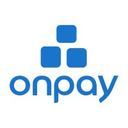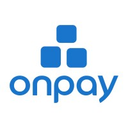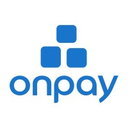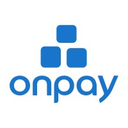OnPay vs Oyster (2025 Comparison)

OnPay offers a comprehensive payroll solution with a user-friendly interface and excellent tax compliance features. It's ideal for small to medium-sized businesses looking to streamline their payroll processes.
- Comprehensive payroll features
- User-friendly interface
- Excellent tax compliance
- Limited global compliance
- Basic remote team management
Free plan?
NoStarting price
$46 per month
Oyster provides a robust platform for managing a global workforce, with strong compliance and remote team management features. It's perfect for businesses looking to expand internationally.
- Strong global compliance
- Effective remote team management
- User-friendly interface
- Higher cost for small businesses
- Complex for domestic-only operations
Free plan?
YesStarting price
USD25 per employee/monthWhat is OnPay?
OnPay is a comprehensive payroll and HR software designed to simplify the complexities of managing employee payments and benefits. It offers a user-friendly interface that allows businesses to automate payroll processes, manage employee benefits, and ensure compliance with tax regulations. OnPay is particularly beneficial for small to medium-sized businesses looking to streamline their HR operations without the need for extensive training or resources. By providing a seamless integration with accounting software and offering robust reporting features, OnPay helps businesses save time and reduce errors in their payroll management.
What is Oyster?
Oyster is a global employment platform that enables companies to hire, pay, and manage a distributed workforce with ease. It simplifies the complexities of international hiring by handling compliance, payroll, and benefits for employees in different countries. Oyster is ideal for businesses looking to expand their talent pool beyond geographical boundaries, offering a seamless experience for both employers and employees. With its intuitive platform, Oyster helps companies navigate the challenges of global employment, ensuring compliance with local laws and regulations while providing a positive experience for remote teams.
Pros and Cons of OnPay vs Oyster

Pros & Cons of OnPay
- OnPay offers a wide range of payroll features that cater to the needs of small to medium-sized businesses. Its automation capabilities streamline payroll processes, reducing manual errors and saving time.
- The intuitive interface of OnPay makes it easy for users to navigate and manage payroll tasks efficiently. This is particularly beneficial for users with limited technical expertise.
- OnPay ensures businesses meet their tax obligations with ease, providing robust compliance features that simplify the complexities of tax management.
- While OnPay offers compliance features, its focus is primarily on domestic regulations, which might not be suitable for businesses looking to expand internationally.
- OnPay provides basic remote team management features, but its focus is more on payroll and HR tasks, which might not be sufficient for businesses with international teams.

Pros & Cons of Oyster
- Oyster excels in global compliance, providing tools to manage international labor laws and regulations. This feature is crucial for businesses looking to expand globally.
- Oyster offers tools to manage a distributed workforce effectively, making it ideal for businesses with international teams. Its platform simplifies the complexities of remote team management.
- Oyster's intuitive interface makes it easy for users to navigate and manage global HR functions. This is particularly beneficial for businesses with international operations.
- Oyster's pricing might be higher for small businesses, particularly those that do not require its global capabilities. This could be a consideration for budget-conscious companies.
- Oyster's focus on global operations might make it more complex for businesses that only operate domestically. Its features might be more than what is needed for such companies.
OnPay vs Oyster: At A Glance
Value to Price
OnPay offers a competitive pricing structure that provides excellent value for small to medium-sized businesses. Its comprehensive features, including payroll automation and benefits management, make it a cost-effective solution. Oyster, on the other hand, provides a slightly higher value due to its global employment capabilities, which are ideal for companies looking to expand internationally. If your business requires global reach, Oyster might offer better value.
Ease of Use
OnPay is designed with simplicity in mind, making it easy for users to navigate and manage payroll tasks efficiently. Its intuitive interface is particularly beneficial for users with limited technical expertise. Oyster also excels in ease of use, with a user-friendly platform that simplifies global hiring processes. If you prioritize ease of use, both tools are excellent, but Oyster's global focus might give it an edge for international operations.
Functionality
OnPay provides robust functionality for payroll and HR management, including tax compliance and benefits administration. It is well-suited for businesses focused on domestic operations. Oyster offers additional functionality for managing a global workforce, including compliance with international labor laws. If your business needs to manage employees across different countries, Oyster's functionality is more comprehensive.
Scalability
OnPay is scalable for growing businesses, offering features that can accommodate an increasing number of employees. However, Oyster's platform is specifically designed for scalability in a global context, making it ideal for companies planning international expansion. If scalability in a global market is your priority, Oyster is the better choice.
Integrations
OnPay integrates seamlessly with popular accounting software, enhancing its utility for businesses that rely on these tools. Oyster also offers integrations, particularly those that support global HR functions. If your business requires extensive integrations for international operations, Oyster might be more suitable.
Customer Support
OnPay is known for its responsive customer support, providing assistance through various channels. Oyster also offers strong customer support, with a focus on helping businesses navigate global employment challenges. If you need support for international HR issues, Oyster's customer service might be more aligned with your needs.
Security
OnPay ensures data security with robust measures to protect sensitive payroll information. Oyster also prioritizes security, particularly in handling international employee data. If security in a global context is crucial for your business, Oyster's security features might be more comprehensive.
Overall Rating
Both OnPay and Oyster are highly rated for their respective strengths. OnPay is ideal for businesses focused on domestic payroll and HR management, while Oyster excels in supporting global employment. If your business needs align with international expansion, Oyster's overall rating reflects its suitability.
OnPay vs Oyster: A Detailed Breakdown of Key Features
Payroll Automation
OnPay excels in payroll automation, offering a seamless process that reduces manual errors and saves time. Its intuitive interface makes it easy for users to manage payroll tasks efficiently. Oyster, while also providing payroll automation, focuses more on global compliance, which might not be as streamlined for domestic operations. If your primary need is efficient payroll automation, OnPay is the better choice.
Global Compliance
Oyster stands out in global compliance, providing tools to manage international labor laws and regulations. This feature is crucial for businesses looking to expand globally. OnPay, while offering compliance features, is more focused on domestic regulations. If your business requires robust global compliance, Oyster is the superior option.
Employee Benefits Management
Both OnPay and Oyster offer comprehensive employee benefits management. OnPay provides a straightforward approach to managing benefits, making it ideal for small to medium-sized businesses. Oyster, however, offers additional features for managing benefits across different countries. If your business operates internationally, Oyster's benefits management might be more suitable.
Tax Compliance
OnPay provides excellent tax compliance features, ensuring businesses meet domestic tax obligations with ease. Oyster also offers tax compliance, but its focus is more on international tax laws. If your business is primarily domestic, OnPay's tax compliance features are more aligned with your needs.
Remote Team Management
Oyster excels in remote team management, offering tools to manage a distributed workforce effectively. This feature is particularly beneficial for businesses with international teams. OnPay provides basic remote team management features, but its focus is more on payroll and HR tasks. If managing a remote team is a priority, Oyster is the better choice.
User Interface
Both OnPay and Oyster offer user-friendly interfaces, making it easy for users to navigate their platforms. OnPay's interface is straightforward, ideal for users with limited technical expertise. Oyster's interface is also intuitive, with a focus on global HR functions. If ease of use is a priority, both tools are excellent, but Oyster's global focus might give it an edge.
Pricing Comparison of OnPay and Oyster
To assist you in making an informed choice, we’ve outlined the pricing plans and essential features of OnPay and Oyster. This comparison will highlight the best option for managing your payroll and HR needs.

OnPay Pricing Plans
- Unlimited pay runs and schedules for flexible payroll management.
- Federal, state, and local tax filings are included for compliance.
- Pay workers in multiple states without additional charges.
- Expert support available via phone, chat, and email for assistance.

Oyster Pricing Plans
- Onboard contractors quickly and efficiently in just minutes.
- Pay invoices seamlessly in 140+ currencies worldwide.
- Manage expenses, time off, and more with comprehensive tools.
- Ensure accurate and compliant employee payments globally.
- Receive expert support from dedicated payroll specialists.
- Generate detailed payslips and comprehensive reports.
- Onboard talent swiftly, often within 48 hours.
- Run payroll in 140+ currencies with ease.
- Access employment intelligence and expert support.
- Reuse seats at no extra cost for flexibility.
- Benefit from speedy bulk onboarding processes.
- Access dedicated support managers for assistance.
Our Rating Methodology
We thoroughly evaluate each HR and payroll software, focusing on key aspects like functionality, ease of use, and global compliance. By analyzing user feedback and conducting in-depth testing, we ensure our recommendations align with your business needs. Each factor is weighted to provide a reliable final rating, helping you make informed decisions.
OnPay or Oyster: Which One Matches Your Business Needs?
Choose OnPay If You Need ...
- Comprehensive payroll solution
If you are a small to medium-sized business looking for a comprehensive payroll solution with excellent tax compliance features, OnPay is the ideal choice. Its user-friendly interface and robust payroll capabilities make it perfect for streamlining payroll processes.
- User-friendly interface
If you prioritize ease of use and need a payroll system that is easy to navigate, OnPay's user-friendly interface is a great fit. It is particularly beneficial for users with limited technical expertise.
Choose Oyster If You Need ...
- Global workforce management
If you are a business looking to expand internationally and need a platform that excels in global compliance and remote team management, Oyster is the superior choice. Its robust features make it ideal for managing a distributed workforce.
- Strong global compliance
If your business requires strong global compliance capabilities to manage international labor laws and regulations, Oyster's platform is the best option. It simplifies the complexities of global employment, ensuring compliance with local laws.
Frequently Asked Questions
 Which tool is better for small businesses, OnPay or Oyster?
Which tool is better for small businesses, OnPay or Oyster?
 How does Oyster handle global compliance compared to OnPay?
How does Oyster handle global compliance compared to OnPay?
 Is OnPay suitable for managing a remote team?
Is OnPay suitable for managing a remote team?
 Which tool offers better customer support, OnPay or Oyster?
Which tool offers better customer support, OnPay or Oyster?
 How do the pricing plans of OnPay and Oyster compare?
How do the pricing plans of OnPay and Oyster compare?
 Which tool is more scalable, OnPay or Oyster?
Which tool is more scalable, OnPay or Oyster?

Martin Lunendonk
Martin Lunendonk is a senior tech writer specializing in website builders, web hosting, and ecommerce platforms. With a background in finance, accounting, and philosophy, he has founded multiple tech startups and worked in medium to large tech companies and investment banking, bringing deep expertise and reliable insights to his software reviews.



